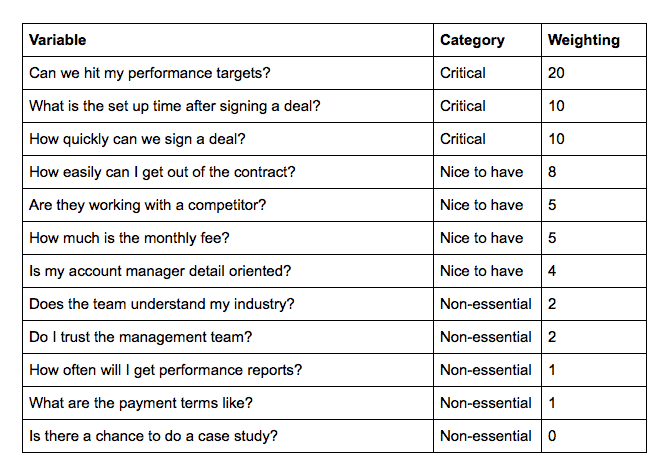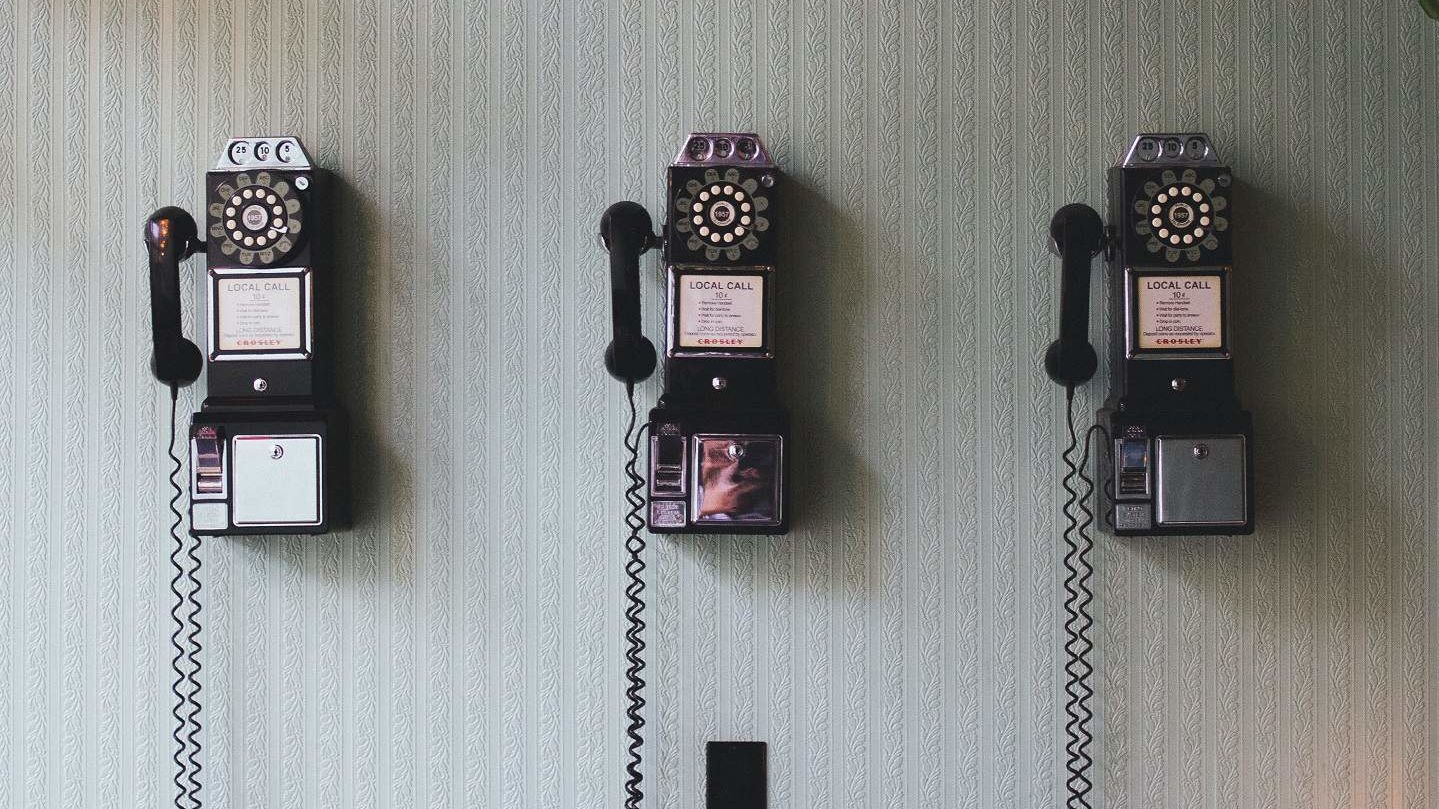Negotiation
Commercial negotiation is not a science, it is an art. Like any art, commercial negotiation is based on a set of techniques. It is always possible to improve and perfect the art of the deal.
Whether you are a salesperson in an SME or an executive in a large company, a large part of your job is to interact with people from different backgrounds and companies to achieve your goals.
Your objectives and those of your interlocutors are not always perfectly aligned. In business, this is often the rule. This is where negotiation comes in.
Contrary to appearances, commercial negotiation is not an “all or nothing” art. Negotiating is not about tricking the other party into making a deal they will regret.
If the other party feels manipulated and cheated, the damage to your reputation can be catastrophic. Short-term gains can translate into significant long-term losses. As Warren Buffett said:
“It takes 20 years to build a reputation. It takes five minutes to destroy it.
In the long run, the way you negotiate can be at least as important as the outcome of your negotiations.
A second thing to bear in mind is that money is not everything and indeed not everything. Money is only one aspect of commercial negotiation.
Most of the time, the people you are dealing with are not only looking for the best rates, but also for quality of service, speed, transparency…
To negotiate intelligently, you first need to know what you want to get out of the negotiation and then what compromises you are willing to make to get it.
A pro in negotiation is someone who can identify what the other party wants to get out of the negotiation and how to find an arrangement that will allow you to get the most out of what you want to get.
Business negotiation is an art, which involves a lot of creativity, but also techniques. In this guide to the art of the deal, we will introduce you to 7 key skills and/or strategies to apply to become a better negotiator.
#1 Go into a sales negotiation with a clear idea of what you want
The best thing to do before a business negotiation is to map out your objectives:
- What do you need?
- What are your priorities?
- What do you expect from this negotiation?
- What will make you happy?
- What, on the contrary, matters less?
Weight your preferences. This is the kind of mapping you can do. In this example, you are looking to recruit a marketing agency:

By doing this work, you will be clear about what you want from the negotiation, what you need to be uncompromising about… This is excellent preparatory work.
In the example above, it is the time-related criteria that matter most (getting the sale done as quickly as possible), not the cost/price-related criteria. In business, time is often more valuable than money.
#2 Always ask for something in return for your concessions
In a commercial negotiation, you will inevitably have to compromise on certain points if you want to succeed in selling. This is normal.
All good negotiators make concessions.
But the important thing is never to make concessions without asking for something in return from the other party. If the person in front of you asks you to lower your price, you are entitled to demand better payment terms.
If the same person wants to shorten the time frame of the services you offer, accept it while explaining that in these cases you will not be able to do everything, that you will have to reduce the scope of the mission.
If the person demands a performance-based contract, ask for payment in advance, etc.
By never agreeing to make concessions without something in return, you will increase the value of the deal and discourage the other party from asking for further concessions. This also has an important psychological impact. The other party will think that they have got all the concessions they could have, which will generate a positive feeling in them.
If you can only negotiate on the price factor, the size of the concessions should decrease gradually. For example, if you go from 100 euros to 80 euros, it would be absurd to go from 80 euros to 50 euros. Instead, go from €100 to €80, then to €70 and finally to €65. This will send a signal to the other party, making them aware that they have less and less room to negotiate. It will make him accept the deal more easily and more quickly.
If you are now in the role of the buyer, the strategy is different. If you want to buy a product with a price of 100 euros, offer 50 euros! If the seller offers you 80 euros, cut the price in half and offer 65 euros.
This approach works most of the time. It is better to lower the offer very low to hope to buy at the best price. Obviously, everything depends on the type of product and the margins on it. A seller will not accept 65 euros instead of 100 euros if his margins are very low…
#3 Become the masters of time
In a commercial negotiation, time is always the key factor. You should not only look at whether to go from 100 euros to 80 euros or from 100 euros to 70 euros, but also identify the right timing between the different proposals.
Making a counter-proposal too quickly will undermine your credibility and make the other party think you are not serious. Taking your time will send a signal to the other side that every euro counts and that this is a key point in the negotiation.
Even if you know in advance that you will eventually agree to the terms offered by the other party, taking your time before agreeing will create more satisfaction for the person in front of you when the sale is concluded. He or she will feel that they have come through a difficult negotiation. In addition, making a proposal or counter-proposal too quickly can be seen as a lack of respect by the other party, as a sign that you want things to go quickly, that you don’t feel like talking, that you are bored with the exchange.
The closer you get to the deadline before giving your response to a proposal, the more the party who needs the deal the most will be willing to make concessions.
#4 Always be prepared to leave the negotiating table
Do you really want to please an estate agent? It’s simple, when the agent shows you a property, tell him or her in the back of your mind that it’s the perfect place and that you want to buy it at all costs. Except that by doing so, you will put an end to all negotiations. All the power goes to the seller. When the seller knows that you will buy in the end, it is quite difficult to negotiate and get concessions from them.
If Coca-Cola does not increase the prices of its drinks, it is because the buyer still has the option of switching to Pepsi. If Coca-Cola knew that buyers would continue to buy their favourite drink despite a price increase, prices would rise. It is the uncertainty about the behaviour of the buyers that makes Coca-Cola leave the price untouched.
In a business negotiation, you should never show too much enthusiasm. The other party must be told that nothing is certain, that you can walk away from the deal at any time. And more generally, you should always question your enthusiasm. There are always other options available. If you say to yourself: “I love this product, I want it, I will buy it. If I can get it cheaper, so much the better, if not, too bad, I need it”, then you probably haven’t taken the time to look at the other possible products / solutions on the market. Beyond placing yourself entirely under the power of the seller by having this mindset, you are probably making a mistake. In life, there are always alternatives.
A word of advice: before you go into the fire and start the commercial negotiation, study the alternatives. This will allow you to be more effective in the negotiation. You should always be prepared to walk away from the deal.
Find out how to use the BATNA – Best Alternative To a Negotiated Agreement in a trade negotiation
#5 Listen first, speak later
Generally, the first person to speak in a business negotiation is the one who loses. This is a rule that almost always holds true, although it is seemingly counter-intuitive. Why is this so?
Because the first person to speak, by definition, has not taken the time to listen beforehand to what the other party has to say. In the art of business negotiation, listening is essential. It provides valuable information that you can use to your advantage in the negotiation.
Let’s take an example. Let’s say you are negotiating with a salesperson and he or she asks you what your budget is. You tell them. There are three possibilities:
- Your budget is higher than the price: the seller will increase the price.
- Your budget is lower than the price: they will try to negotiate with you to sell you their product at their price.
- Your budget is really too low: the seller will decide to end the negotiation right away.
By letting them know your budget, you have given them key information that allows them to take power in the negotiation. In all three possible situations, you lose.
Hence our advice: get the other party to talk as much as possible to gather information and find out their motivations. The good commercial negotiator is one who knows how to listen to the people in front of him, before being a smooth talker. He is an ear before he is a mouth.
#6 Decipher the unspoken
You have to be attentive to what the other person is saying, listen to them, as we have just seen. But you must also learn to detect what the other party is not saying, what they are consciously or unconsciously trying to hide. Sometimes out of shame.
People don’t always want you to know what they want. Sometimes showing empathy can remove these blocks and get the person to talk. But this means being aware of things that are not being said. Which, by definition, is not obvious, given that…nothing is said.
If you feel that the person in front of you is behaving irrationally and seems to be refusing to sign the contract for unclear reasons, try to understand why, to put yourself in their shoes. Once you have identified the reasons for these irrational blocks, change your approach. For example, perhaps the person you have on the phone refuses to close the deal because their boss is in the next room. In this case, offer to meet them in a café.
#7 Always be transparent
In the business world, it is accepted that time is a factor in the success of a sale. The longer you spend negotiating, the greater the risk of losing the deal.
There are many reasons for delaying the sale. Sometimes, playing for time can even be a clever tactic to get a better price. But it is a risk to take. As time goes on, the likelihood of the other party walking away from the negotiation increases.
If the commercial negotiation is done on a sincere basis and both parties have a real interest in the deal, we advise you to be transparent. If you are the buyer, being honest about what you want, when you want it and what alternatives you have identified can help you close the sale sooner. This builds trust between the two parties. If you want to build a long-term relationship with the other party (repeat purchases), it can only be beneficial to do so.
Make transparency a habit. Apply it even to smaller deals. It builds a reputation and gives you an advantage when you have the opportunity to negotiate bigger deals with people who already know you. When someone says ‘yes’ to you once, they are more likely to say ‘yes’ again in the future. Some people even systematise this approach. They start by negotiating a series of small contracts with the other party so that they can more easily negotiate large contracts in the future.
Commercial negotiation is not learned overnight. As in other areas, you grow through experience. All the tips we have given you are based on experience. There are probably many more. If you have any in mind, please feel free to share them in the comments!



